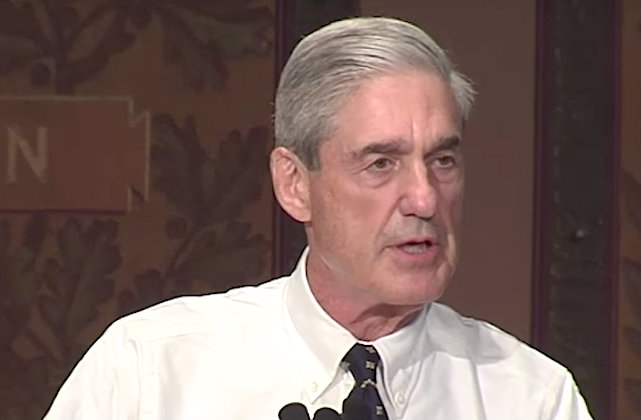
President Donald Trump hasn’t been shy to express his feelings about the Russia investigation or Special Counsel Robert Mueller. Rumors have been swirling that he might fire Deputy Attorney General Rod Rosenstein or Attorney General Jeff Sessions, and replace them with someone who will agree to fire Mueller, since DOJ rules prohibit Trump from doing it himself. But, what if Trump just pulled the trigger without getting someone from DOJ to do it for him? Would that be illegal? There is a pretty convincing and interesting legal argument that Trump actually has the power to do it on his own. In other words, he doesn’t need to fire Sessions if his ultimate goal is getting rid of Mueller. Trump could just march into Mueller’s office and tell him to pack up, and it might be legal. At the very least, that’s what Trump will argue if he goes through with it, and he may have a constitutional leg to stand on.
First the DOJ Regulations.
Section 600.7(d) of the special counsel regulations, drafted in 1999, say that someone in Mueller’s position “may be disciplined or removed from office only by the personal action of the Attorney General.” The rules require that the Special Counsel be fired for “incapacity, conflict of interest, or for other good cause.” But, those regulations are far from bullet-proof.
Trump Could Throw Out the Rules and Fire Mueller
Neal Katyal, an Obama administration attorney, and one of the authors of the regulations admitted that yes, the President can just throw out the rules.
“Our Constitution gives the president the full prosecution power in Article II; accordingly, any federal prosecutor works ultimately for the president,” Katyal wrote. “Trump could order the special-counsel regulations repealed and then fire Mueller himself.”
Trump Could Say He Already Has The Power to Fire Mueller
Trump could also argue that, as President, in order for him to comply with his oath, he needs to be in control of the executive branch, and Congress overreached its authority by creating rules regarding the Special Counsel, which is part of the Executive Branch. Thus, Trump can actually ignore the rules because they are unconstitutional.
In a Notre Dame Law Review article, D.C. Circuit Judge Brett Kavanaugh said that the President doesn’t have to comply with regulations if he deems them unconstitutional:
the Executive has to follow and comply with laws regulating the executive branch—at least unless the President deems the law unconstitutional, in which event the President can decline to follow the statute until a final court order says otherwise.
Josh Blackman, a Constitutional law professor at South Texas College of Law, had a similar thought. “If President Trump determines that the regulations impose unconstitutional restrictions on his executive powers under Article II, he could direct this Attorney General to fire him at will,” Blackman said in an email to LawNewz.com.
And, should Trump raise a constitutional challenge, there’s case law to back him up.
In Myers v. United States, the Supreme Court held that the President has the exclusive power to terminate executive branch officials. The question is, would Mueller be considered a member of the Executive Branch? Well, the Department of Justice is part of the executive branch, and Mueller was appointed by Deputy Attorney General so, perhaps, yes. This very issue came up when President Richard Nixon got Robert Bork to fire Archibald Cox during the Watergate saga.
In Nader v. Bork, the D.C. District Court found that the Special Counsel did not serve at the President’s pleasure.
It should first be noted that Mr. Cox was not nominated by the President and did not serve at the President’s pleasure. As an appointee of the Attorney General Mr. Cox served subject to congressional rather than Presidential control.
But … there’s a but. As Blackman noted in a recent legal blog post after the Supreme Court’s decision in United States v. Nixon, the Nader decision was ultimately vacated, the case was “mooted” and Judge Gesell’s decision has no legal effect. So the question remains unresolved.
Another interesting Constitutional twist that Trump might try to argue? Katyal raised this as well. Trump might use the foreign policy defense. He could say that Mueller’s investigation is undermining the United States’ relationship with Russia, and the President has the authority/prerogative to deal with foreign affairs. There too, he would have some historical precedent to back his theory up. There is a long string of case law including Supreme Court decisions which empowers the President to deal with foreign policy issues.
Bottom line: we don’t know what the court would decide if Trump tried to pull any of these maneuvers, but there are certainly some plausible constitutional defenses if Trump decided to take unilateral action and fire Mueller. Given Trump’s track record, we wouldn’t be surprised if he decides to do just that.